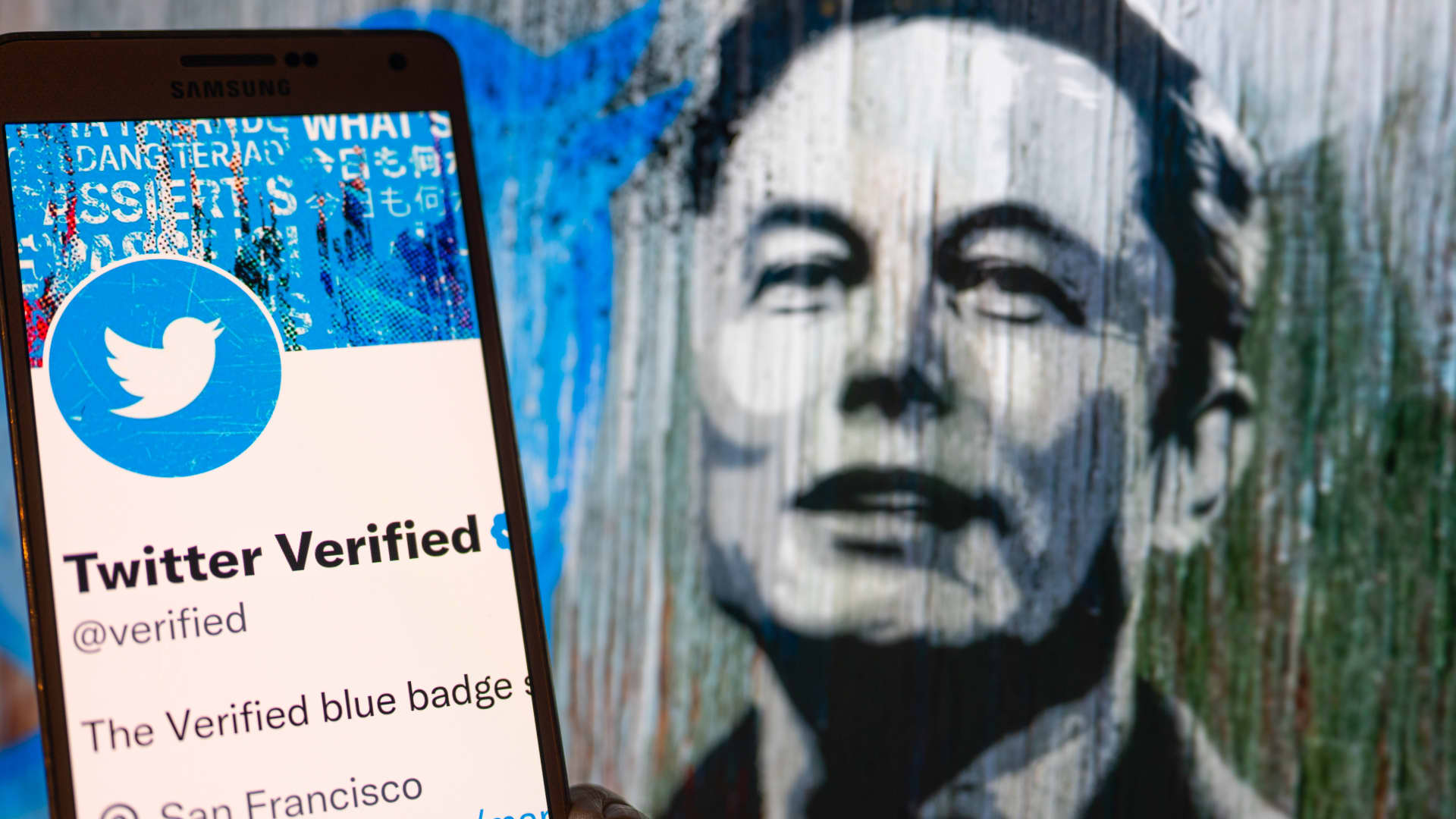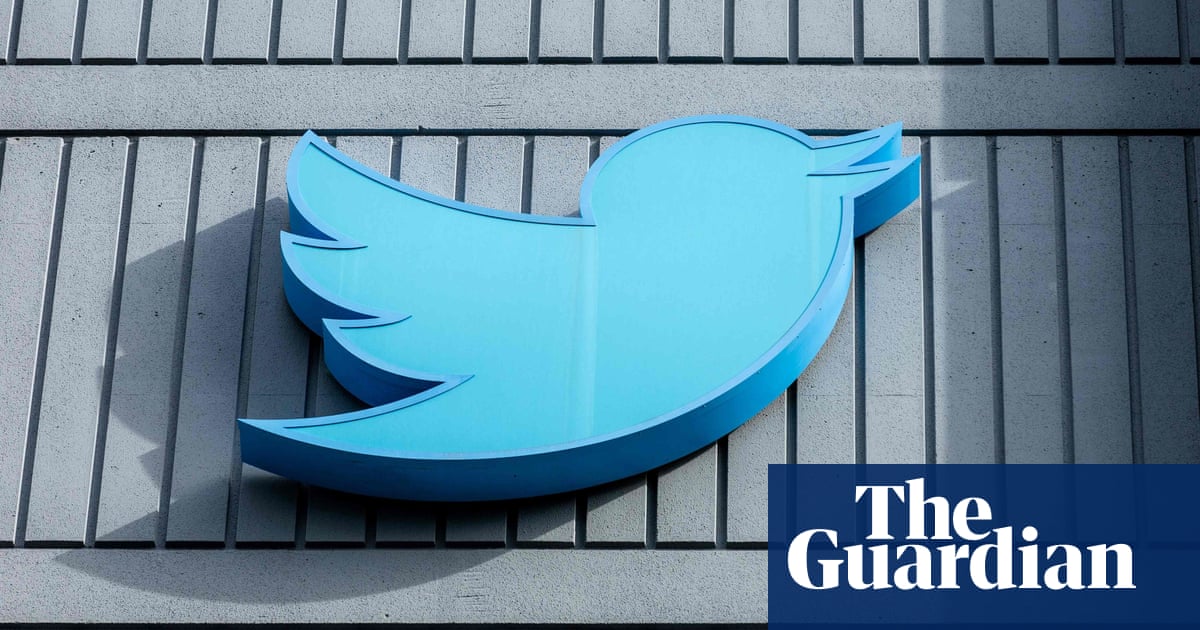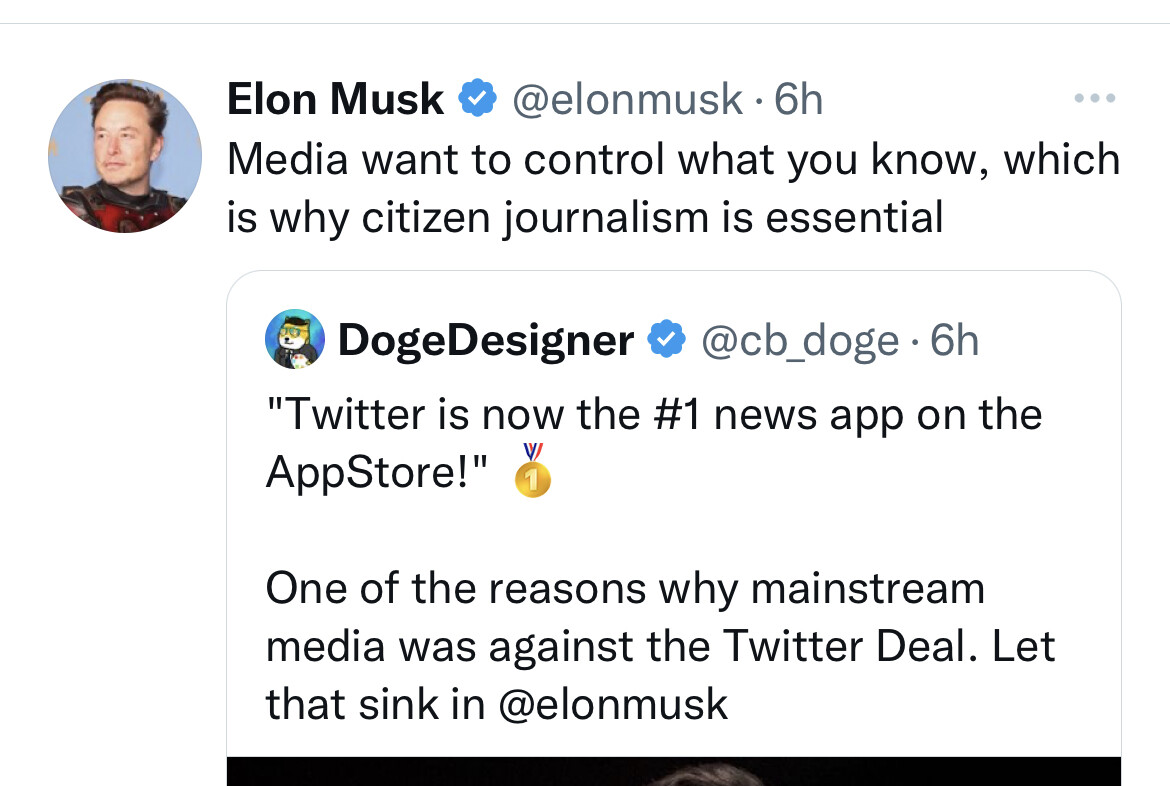Elon Musk Drives Even Some Twitter Founders to Mastodon
Twitter headquarters in San Francisco.
Photographer: David Paul Morris/Bloomberg
By
Kurt Wagner
January 12, 2023 at 6:45 AM EST
Even former Twitter executives are heading to Mastodon. But first...
Just setting up my Mastodon
For the past few weeks, I’ve watched a growing number of people I follow on Twitter slowly migrate to
Mastodon, a competing social network that looks a lot like Twitter.
It’s easy to understand Mastodon’s sudden rise in popularity. The service is growing because a lot of people are unhappy with Twitter Inc.’s new owner, Elon Musk, who paid $44 billion for the company in late October, and has quickly alienated key stakeholders, including users and advertisers. Whether it’s the way he has
treated laid off workers or his seemingly haphazard policy decisions, a lot of people just don’t think Twitter is
Twitter anymore now that Musk is in control. They’re looking for an alternative, and Mastodon is the perhaps the next best thing.
Mastodon’s appeal has even attracted a few unlikely visitors: Twitter co-founders Ev Williams and Biz Stone both created accounts on Mastodon in recent weeks. “I’m kinda tinkering with it,” Stone says. “I don’t know if I’m doing something wrong or what, but my Twitter experience isn’t as great [recently]. I don’t know if it’s the people that I follow aren’t tweeting anymore or what’s happening.”
“Tinkering” or not, the fact that Twitter’s founding team signed up for Mastodon says something about the viability of both networks. For Mastodon, it’s a sign of credibility. For Twitter, it’s a potential reason for concern. The guys who built Twitter are suddenly wondering if a better version of the service exists somewhere else.
Part of why Williams and Stone joined Mastodon is because of Medium, the blogging company that Williams founded a decade ago and where they both sit on the board. On Thursday, Medium announced that it has set up an online community on Mastodon. Medium Chief Executive Officer Tony Stubblebine, another O.G. Twitter employee who was at the company when it was created, is convinced that Mastodon’s open-source tech structure is the future of social networking.
Evan "Ev" Williams
Photographer: David Paul Morris/Bloomberg
“I don’t think of this as an experiment even,” Stubblebine says of Mastodon. “We think Mastodon tipped over and that all authors need to be there.”
The way that Mastodon works is that anyone with a little time, money and technological knowhow can create an “instance,” or community, on the Mastodon network. Each instance is unique and has its own set of rules and guidelines, but members of separate communities have the option to interact with one another. The idea is to offer a collection of social networks that are interoperable, but aren’t controlled by a singular person or company, like Twitter is. If you don’t like the rules in a particular instance, you can join another one that better aligns with what you care about.
When Medium announced its own “instance” on Mastodon, it became one of the first corporations to do so. (Mozilla, the foundation behind the FireFox browser, also runs its own instance.) Medium will use its existing corporate resources — including site reliability staff and trust and safety employees — to support and police its Mastodon community.
“I love the idea of an open and distributed — yet connected — network,” Williams said via email. Innovation in social networking has suffered over the past decade because “the major platforms have had too strong of a network effect for new ideas to get to critical mass,” he added.
“Now we are at a unique point in time when people are actively looking for alternatives, which is exciting.”
Shortly after Elon Musk took over Twitter, Stone briefly considered trying to build his own “new” version of Twitter. He quickly remembered that the key wouldn’t be developing new technology but building up the network of users. “The hard part is developing a massive follow graph over many, many years,” he says.
Mastodon is attracting a few key users. We’ll see if others choose to follow. —
Kurt Wagner











